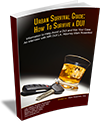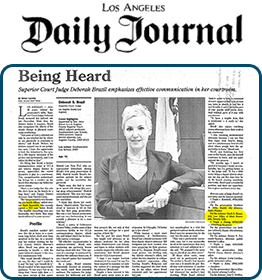Drivers Aged 40 to 60 That Receive DUIs Are Unluckily in the Wrong Place at the Wrong Time
The next large group that we see stopped for driving under the influence is in the range of 40 to 60 years old. This makes up a very large segment of the DUI population and a growing segment of the DUI population.
The individuals in this group are usually just in the wrong place at the wrong time. Maybe they were stopped at a check point or there was a DUI saturation patrol or there were a large number of police officers patrolling.
This Age Group Also Exhibits Good Driving Skills but Fare Less Well with the Field Sobriety Tests
Typically 40- to 60-year-olds are actually pretty good at driving even if they have had a little bit to drink. They are not really impaired; their driving isn’t really impaired, but we start to see problems developing with the field sobriety tests.
These field sobriety test problems may have a lot to do with the age, 40 to 60, rather than impairment from alcohol. As far as the Department of Motor Vehicles is concerned, the same rules that apply to 21-year-olds apply to 40-year-olds. Like the 21-year-old, the one who is 40 still has only 10 days from the date of arrest to demand a hearing. If we don’t get that hearing demanded within the 10 days, the DMV automatically suspends the license.
Retain an Attorney as Soon as Possible to Handle the DMV Action as Well as the Court Case
It’s important in defending a DUI case to get started early. We need to demand that hearing and obtain a stay which stops the suspension. We need to get a new temporary license and get a hearing scheduled with the driver’s safety office so we can have an opportunity to contest it. The same rules in court apply to those aged 40-60 as they do to those aged 21-40.
If the 40- to 60- Year-Old Driver Retains an Attorney, They Also Benefit from Not Having to Take Time off Work or Miss Other Obligations
In most cases, an attorney can step in and represent a person accused of driving under the influence without the client having to be there. A person does not have to miss work or take time away from their family to have the case properly defended. They can communicate with their attorney confidentially so work or family members don’t find out. They won’t have to take time off from work or other obligations, and the attorney can help them in court.
The 40- to 60-Year-Old Driver May Be Involved in a “Pretext” Stop by the Police
Oftentimes, when we take a step back and look at people who are 40 to 60 years old who are stopped for driving under the influence, it’s commonly referred to as a pretext stop. The officers were looking for any reason at all to stop somebody. Maybe they pulled out of a parking garage and their headlights aren’t on yet because they haven’t been outside long enough for the headlights to be turned on.
Another pretext may be an expired registration. You’ll see people getting stopped at midnight, at 2.00 a.m., 3.00 a.m. and that just happens to be usually right around the time the bars and restaurants are closing and the officers are looking for any reason at all to pull someone over. Another example of a pretext stop is not wearing a seatbelt. These stops often have nothing to do with impairment or bad driving; it’s just police officers looking for a reason to stop somebody.
This Age Group May Exhibit Driving Patterns That Are More Due to Age Influences or Fatigue Than to Alcohol Consumption
The driving skills that we typically would see in the 40- to 60- year old who has been charged with a DUI is usually pretty normal but possibly not necessarily perfect. We may see some weaving or lane straddling that is not necessarily due to alcohol but it may be due to the time or due to people being tired. There are a lot of stresses on the 40- to 60-year-old group that can result in driving that may or may not appear to be impaired, and that’s often the case.
Where we run into trouble with the 40- to 60-year-old group is after a stop when they are given the field sobriety test. Police officers administer field sobriety tests, and drivers who are stopped and asked to do them often try their best but have problems. They can have problems for a variety of reasons.
It May Not Be Appropriate for the Police to Ask This Age Group to Perform the Field Sobriety Tests, but They Often Ask Anyway
They may have physical limitations or physical injuries that result in field sobriety tests not being appropriate, but police officers give them those tests anyways.
Police officers also have problems giving the test as well as taking the test, and that can result in miscommunication and errors. If somebody does poorly on a field sobriety test, it may be because of alcohol—or it may just be because they’re not an appropriate candidate for that type of test.
Some Officers May Administer a Non-Standardized Test and the Result Is Impossible to Evaluate
We see officers giving field sobriety tests that are non-standardized field sobriety tests, not one of the national highway traffic and safety administration approved field sobriety tests. If it is one of these non-standardized tests it’s almost impossible to pass because there is no scoring or grading of it.
People will often have physical problems that will prevent them from doing well on a field sobriety test and that has nothing to do with whether they’ve had anything to drink for that particular night. It becomes very important when looking at the 40- to 60-year-old group to rely on the chemical testing.
In the 40 to 60 Age Group of Drivers, Chemical Tests Are a More Accurate Method of Determining Impairment
The chemical testing can be breath or blood testing because that’s more telling of whether or not somebody is impaired from alcohol than any field sobriety test or any driving that took place.
Breathalyzer and Blood Tests: Was the Device Properly Maintained and Was the Officer Properly Trained in Its Usage?
In attacking chemical testing or looking at the trustworthiness of chemical testing, we, of course, need to look at the California code of regulations Title 17 which lays out the framework for how the instruments should be maintained, calibrated, and checked for accuracy. It specifies how the officer should be trained and we always examine whether that was actually done in a particular case.
When looking for holes in the prosecution’s case regarding chemical testing, it’s often surprising to see what the errors are and when and how they’re documented. They are usually documented by the crime labs, not by the police officers themselves.
There are instances where breath or blood testing machines remain in service for days or weeks or months with errors. This is because police officers don’t tell the crime lab and the crime lab doesn’t go out and actually inspect the machines until they’ve completely broken.
It Takes Specialized Knowledge to Know What May Be Malfunctioning on a Chemical Testing Device
Just recently, I found errors on breath testing machines where the air pumps in the machines were not functioning properly and where the internal working components were so dirty the machines couldn’t function properly.
The machine has various heaters in it regulating the temperature of the breath holes, regulating the temperatures of the sample in the chamber. I’ve seen where these have gone out of calibration and given inaccurate numbers.
Now, the individual test may appear to be working fine but the trustworthiness of the machine and how those tests are calculated is no longer reliable. Of course machines wear out and these machines are used by police officers who are very hard on them. The machines can wear out and that can lead to inaccurate or false readings on the machine.
When we’re dealing with the age group of 40 to 60 years old, finding these errors or problems with the chemical testing equipment (whether it is breath testing, blood testing or urine testing) is key to getting the best possible results in any particular case.






 Personal Attention
Personal Attention








